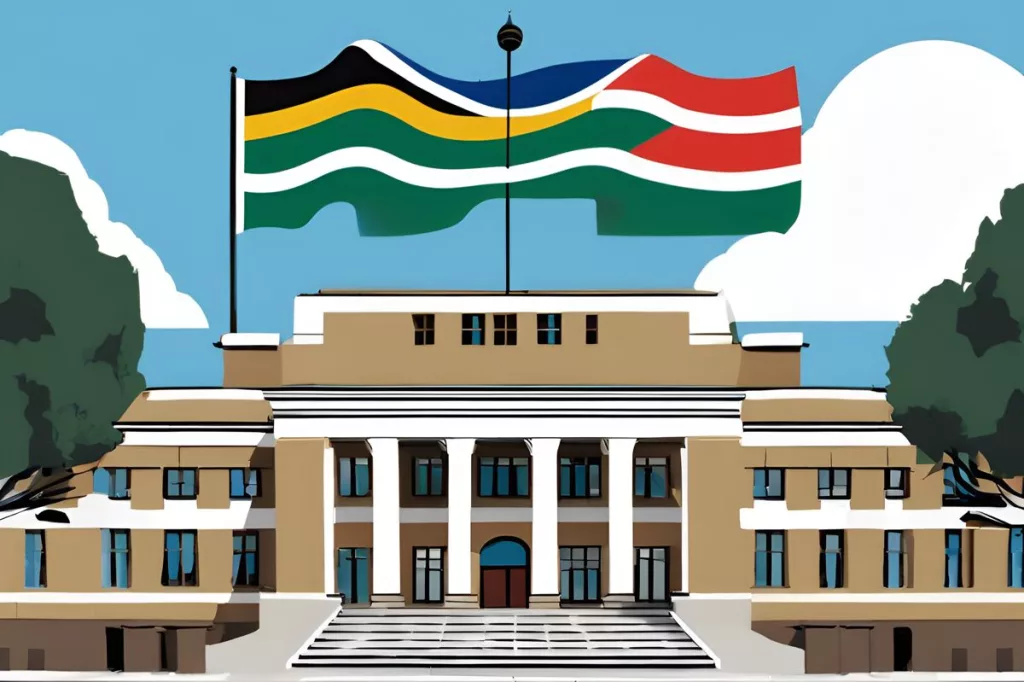The South African Parliament is a bustling center for political, socioeconomic, and legislative activities. It showcases the nation’s pledge to responsibility, transparency, and public participation in democracy. This week’s agenda includes a presidential session, committee meetings, and strategic planning sessions, highlighting the Parliament’s dedication to shaping the country’s policies and strategies. The Parliament is also committed to educating citizens about their rights and privileges and recognizing members who serve their nation.
Get ready for the Three Sphere Planning Session, a pivotal gathering of South Africa’s National Council of Provinces (NCOP) scheduled from Tuesday, 27 August to Thursday, 29 August 2024. The session aims to address political and bureaucratic interplay, foster consistency in planning and implementation across the three spheres of governance, and enhance intergovernmental relations. Ministers, Heads of Chapter Nine Institutions Supporting Democracy, and distinguished academia will attend, and media professionals and the public can follow the proceedings live online. This platform signifies a commitment to fostering a more transparent, accountable, and effective governance system for the people of South Africa.
South Africa’s National Council of Provinces (NCOP), the nucleus of the country’s democratically elected power structure, is set to begin a new term with renewed excitement and anticipation. Newly elected chairpersons and Whips are undergoing a twoday immersion program to lay the groundwork for fulfilling the NCOP’s charge, which includes supervising government departments and handling Bills. With up to 15 committees gearing up to assemble, the Parliament of the Republic of South Africa remains steadfast in keeping citizens in the loop and updating the committee meeting schedule, demonstrating the country’s commitment to transparency and democracy in action.
The National Council of Provinces (NCOP) plays a pivotal role in ensuring provincial interests are respected at the national government level, aiding in intergovernmental relations and supporting cooperative governance in South Africa. Deputy President Shipokosa Paulus Mashatile emphasized the importance of endorsing government priorities aimed at steering inclusive growth, alleviating poverty, and establishing a proficient, ethical, and developmental state in his keynote speech to the NCOP. Mashatile’s visionary approach to cooperative governance underscores the need for joint commitment, accountability, and a shared vision for a prosperous future in South Africa.
The National Council of Provinces (NCOP) in South Africa recently made several appointments, including the election of Mr. Poobalan Govender as Deputy Chairperson. Other roles were assigned to various members, signifying the country’s dedication to good governance and democracy. These decisions were made during a plenary session and represent a mix of experienced and emerging leadership, demonstrating South Africa’s commitment to democracy and its continuous refinement of governance structures. The NCOP plays a vital role in fostering and preserving democratic governance in South Africa.
South Africa witnessed a historic event with the inaugural session of the National Council of Provinces (NCOP) on June 15th, 2024. The NCOP comprises 54 representatives from all nine provinces, pledging to serve the South African population. Ms. Refilwe MtshweniTsipane from the Mpumalanga province was unanimously elected as Chairperson, while Mr. Kenneth Mmoiemang was elected as Chief Whip. The NCOP embodies the principles of inclusive and democratic governance, prioritizing provincial representation over personal political aspirations.
The South African Parliament mourned the sudden loss of Nkululeko Masondo, son of the National Council of Provinces’ Chairperson, Mr Amos Masondo, at the age of 24. The Presiding Officers expressed their deep sorrow and extended genuine condolences to the Masondo family during this challenging time. Despite the grief, the Parliament continues to function, with dedicated individuals like Ms Delmaine Chelsey Christians representing the democratic spirit and commitment to public service. Nkululeko Masondo’s legacy remains indelible, reminding us of the personal stories interwoven with the national narrative and the strength of the human spirit.
The National Council of Provinces (NCOP) plays a crucial role in South Africa’s democracy, bridging the gap between people and state institutions and promoting social cohesion. The NCOP’s mission is to actualize Mandela’s vision of a democratic, prosperous, unified, and nonsexist society. Under the ANCled Administration, South Africa has made significant advancements in education, healthcare, and energy security, while mitigating the impact of challenges like the COVID19 pandemic. The government’s commitment to social transformation and providing quality healthcare and education for all South Africans remains unwavering.








